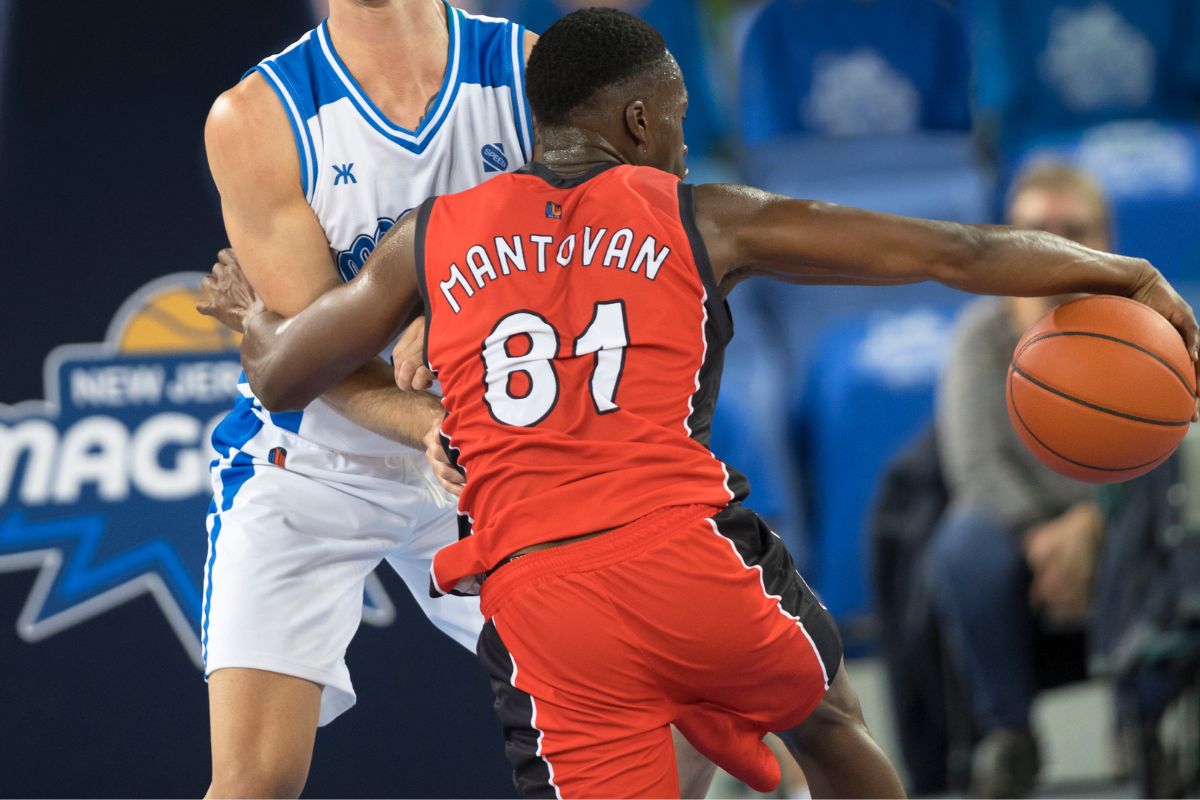Hockey is a high-intensity sport demanding endurance, speed, skill, and resilience. To excel on the ice, players must prioritize their nutritional input to fuel their bodies sufficiently. The key nutritional needs of hockey players revolve around adequate hydration and a balanced intake of macronutrients and vital micronutrients.
An ideal diet emphasizes a significant intake of complex carbohydrates such as whole grains, fruits, and vegetables, providing sustained energy for the game's high-intensity spurts.
Protein, originating from lean meats, dairy, and plant-based sources, helps in muscle recovery and strength-building which is a necessity given the sport's physical nature. Healthy fats from sources like avocados, nuts, and olive oil offer long-lasting energy reserves for prolonged matches and practices.
Let’s take a look at the right way to fuel up your body before a rigorous training session or an intense match. So, gear up to learn everything you need to about the best Diet for Hockey Players.
Caloric Intake for Hockey Players
A regular hockey player can burn anywhere from 500 to 700 calories during a single game, professional players may burn up to 1500 calories at the same time. For players hitting the ice multiple times a week, plus training sessions, the caloric demands are higher.
This makes diet and calorie intake important for maintaining performance levels. For a hockey player, the importance of matching caloric intake with expenditure cannot be overstated. On days you practice, you might burn fewer calories than on days you play a competitive match, whereas there would be a very little caloric requirement on days you are cooling off.
You must as such make sure to adjust your intake based on your activity level on any given day. On high-intensity training or game days, caloric needs will be higher, so you may need to consume more.
Shop & Save on Protein Powder on Sale
Nutrition Guide for Hockey Players
Macronutrients are the primary components of our diet and play an indispensable role in energy production, muscle building, and other bodily functions. They are divided into three main categories: carbohydrates, proteins, and fats.
Carbohydrates: Quick Energy for Intense Play
Carbohydrates are the body's primary source of energy. When consumed, they break down into glucose, which fuels our cells, especially during high-intensity activities. The brain relies heavily on glucose derived from carbohydrates. A steady intake ensures good cognitive function and concentration.
Proteins: Repairing and Building Muscle
After strenuous workouts or physical activity, muscles experience wear and tear. Proteins supply amino acids, the building blocks for muscle repair and growth. Beyond muscle, protein is essential for the formation of enzymes, hormones, and other bodily components.
Fats: Sustained Energy and Hormone Production
While carbohydrates offer quick energy, fats act as a reservoir for sustained energy. During prolonged low to moderate-intensity activities, fats become a primary energy source. Fats are essential for the production of certain hormones, like testosterone and estrogen, which play roles in muscle growth, and reproductive health.
Pre-game Meals and Snacks for Hockey Players
A well-chosen pre-game meal and snack can fuel the body effectively, providing the sustained energy required for the game's demanding physical exertion. Consuming complex carbohydrates, like whole grains and starchy vegetables, ensures a slow and steady release of energy, preventing energy dips during crucial moments.
Lean proteins, like chicken or fish, help in muscle recovery and repair while staying hydrated with water or an electrolyte drink is equally important.
Snacking on easily digestible items, such as a banana or a handful of nuts, about 30 minutes before the game can offer that extra burst of energy. Prioritizing these dietary considerations will not only maximize your stamina and skill on the ground but also reduce the risk of injury and fatigue.
Pre-Game Meal Recommendations
- Chicken Pasta Primavera
- Quinoa and Salmon Salad
- Turkey Avocado Wrap
- Rice, Veggie, and Tofu Stir-Fry
- Beef and Vegetable Kabobs
- Sweet Potato and Black Bean Burrito
- Omelette with Whole Grain Toast
- Pita Bread Pizza
Shop & Save on Pre-Workout Supplements
The Ideal Time to Have a Pre-Game Meal
For all meals, try to consume them around 3-4 hours before game time to allow for proper digestion. Pair each meal with a hydrating drink like water or an electrolyte drink, especially if the game environment is hot or humid. Avoid too much sugar or overly fatty foods close to game time, as they might hinder performance.
Pre-Game Snacks Recommendations
Nutrient-rich pre-game snacks will ensure necessary energy levels on the ground. Go for foods like,
- Banana & Peanut Butter
- Greek Yogurt & Berries
- Oatmeal with Nuts & Honey
- Whole Grain Bread with Avocado
- Energy Bars
- Mixed Nuts
- Smoothie with Spinach, Berries, and Protein Powder
Staying Hydrated
Hydration is more than just drinking water; it's about maintaining the balance of fluids in our body. Water plays a central role in many bodily functions, including digestion, absorption, circulation, and temperature regulation. When you are not adequately hydrated then your Energy levels drop as dehydration can cause fatigue, making you feel tired and lethargic.
Cognitive functions suffer as Lack of water can impact concentration, alertness, and short-term memory. Digestive problems arise as Dehydration can lead to constipation and other digestive issues. Skin health declines because Proper hydration helps to keep the skin moisturized and can prevent premature aging. Regulation of body temperature is affected because Sweating, our natural cooling mechanism, requires adequate hydration.
Shop & Save on BCAA Supplements at Discounts
The Role of Electrolytes in Balancing Fluids and Ensuring Muscle Function
Electrolytes are minerals that carry an electric charge when dissolved in water. Common electrolytes include sodium, potassium, calcium, and magnesium. Their functions are vital due to the following reasons:
- Fluid Balance: Electrolytes help regulate the balance of fluids in and out of cells, tissues, and organs.
- Nerve Signaling: They are essential for transmitting electrical signals in the body, which is crucial for nerve impulses.
- Muscle Function: Electrolytes ensure proper contraction and relaxation of muscles. An imbalance can lead to cramps or muscle weakness.
- Acid-Base Balance: They help maintain the body's pH level, ensuring it stays within a narrow range
Post-Game Recovery for Hockey Players
As a hockey player, the demands on your body are immense. The constant stop-and-start action, rapid direction changes, and high-speed plays tax your muscles and energy systems. But the game doesn't end when the final whistle blows; what you do afterward plays a crucial role in how well you recover and prepare for the next match or training session.
Refueling with the Right Nutrients
The intense exertion of a hockey game depletes the body's glycogen stores, which are the primary source of energy for muscles. Moreover, the physical nature of the sport can lead to microscopic damage to muscle fibers. Therefore, it becomes more than necessary to consume a balanced mix of nutrients shortly after the game.
The Importance of Protein and Carbohydrate Timing
The timing of nutrient intake can greatly influence recovery. There's a so-called "golden window" of recovery, roughly 30 minutes to two hours post-exercise when your body is primed to absorb and utilize nutrients most effectively.
Immediate Intake (within 30 minutes)
Consuming a combination of proteins and carbohydrates shortly after the game can jumpstart the recovery process. This quick action ensures that muscle protein synthesis is initiated and glycogen stores begin to refill. A simple shake with protein powder and a carbohydrate source like a banana can do the trick.
Continued Refueling (within 2 hours)
A more concrete meal containing proteins, carbohydrates, and fats should be consumed. This might look like grilled chicken, quinoa, roasted vegetables, and a slice of avocado.
Supplements for Hockey Players
Protein Powder
- Assists in muscle repair and growth after intensive training.
Creatine
- Boosts short-term explosive energy, which can be beneficial for quick bursts on the field
Branched-Chain Amino Acids (BCAAs)
- Helps in muscle recovery and reduces muscle soreness.
Omega-3 Fatty Acids
- Promotes heart health, reduces inflammation, and can improve brain function.
Beta-Alanine
- Increases carnosine levels in muscles, which can delay muscle fatigue.
Caffeine
- Enhances focus, energy, and endurance.
Common Dietary Pitfalls and How to Avoid Them
As a Hockey player, with your intense training and game schedules, you need to ensure that your dietary habits fuel your performance significantly.
One major pitfall that many young players fall into is an over-reliance on processed foods. These foods, although convenient, often lack the essential nutrients needed for peak performance and can be laden with unhealthy fats, sugars, and additives. Instead, they should prioritize whole, nutrient-dense foods like lean proteins, complex carbohydrates, and healthy fats to sustain their energy and support muscle recovery.
Another common oversight is neglecting hydration and micronutrients. Dehydration can seriously impair a player's performance and cognitive abilities. Regularly consuming water, and electrolyte-rich drinks, is crucial, especially during intense physical exertion.
Also, while macronutrients like protein, carbs, and fats are essential, it's equally important not to overlook micronutrients like vitamins and minerals. Combining a diverse range of fruits, vegetables, whole grains, and lean proteins can help ensure that you receive a well-rounded nutrient profile to support both your health and your performance on the field.
Bottom Line
For hockey players, it's imperative to adopt a holistic approach to diet and performance. Nutrition is not just about fueling the body for the next game but encompasses a broader perspective of long-term health, recovery, and mental well-being. By blending a well-rounded dietary plan with training routines, hockey players can improve their performance on the ground, reduce injury risk, and enhance their all-around vitality.
Buy Sports Nutrition & Supplements from SixStar
Read Our Top Read Blogs:


